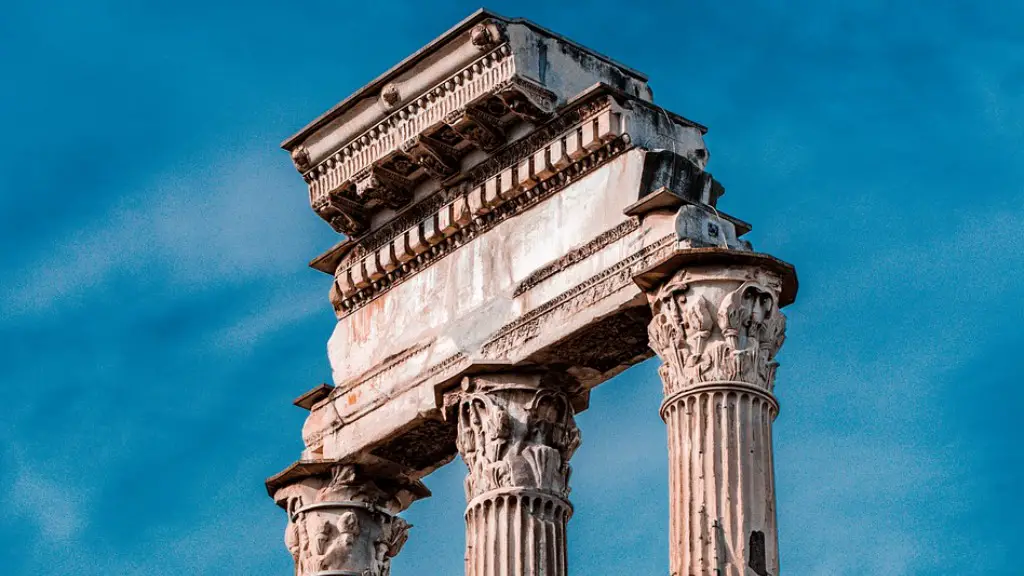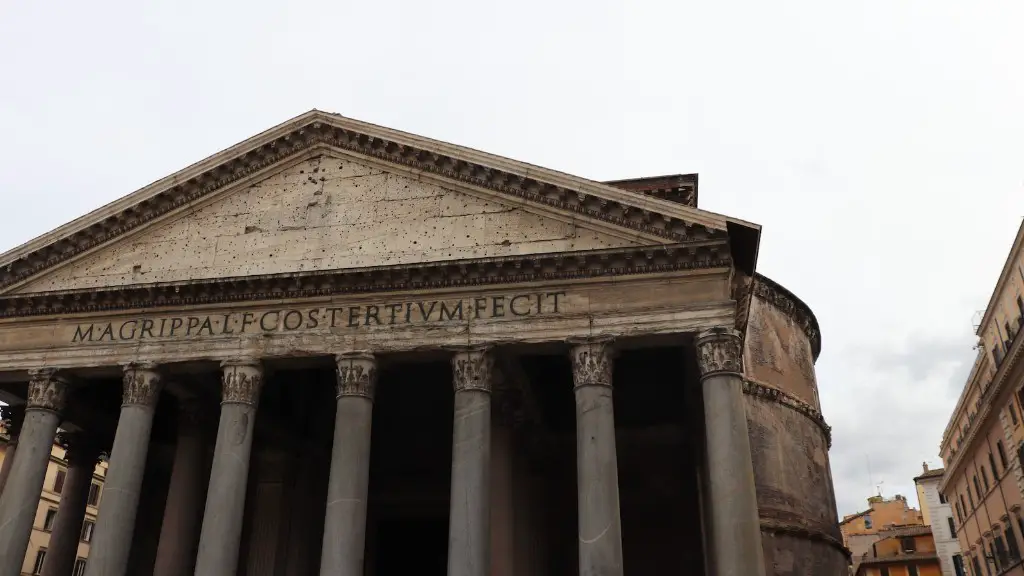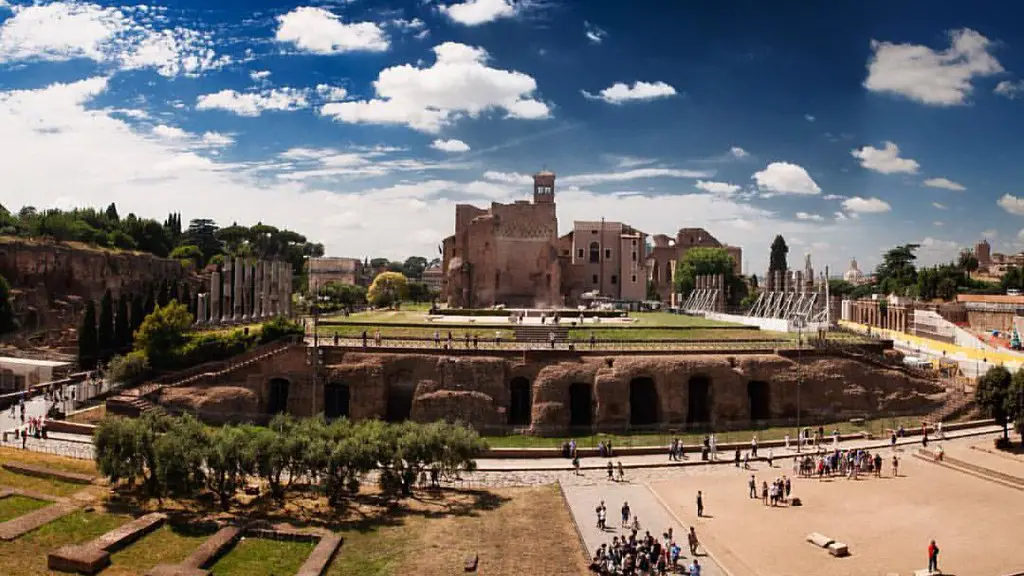Why Did Gladiators Fight in Ancient Rome?
Gladiatorial combat was a trademark of the ancient Romans. Gladiatorial contests, more commonly known as the ‘Games’, were at the heart of Roman entertainment and even the political system. This sustained passion for pandemonium and chaos mirrored their passion for warfare and the strength of their martial spirit.
In essence, Gladiatorial combat was a show that commenced with a display of armed combat. This thrilling event began with the combatants entering the arena wearing full armor, each armed with a variety of weapons, such as swords, bows and arrows, spears, and lances. The fighters had to display a strange mixture of ferocity and honor, of courage and skill, in order to make the audience cheer. By the end of the show, one of the combatants was either proclaimed the victor or killed.
The gladiators were highly skilled and skill often determined victory. They were mainly in their twenties and thirties, men of strength and courage, although women were part of the shows as well. Experienced fighters had to join a ludus, a gladiator school, where they were trained in various methods of combat. The fighters were slaves or prisoners of war and had to pledge fealty to their sponsor, the ruler or magistrate who had hired them. In some cases, gladiators could be freed after a number of victories.
It is unclear why the Romans preferred bloody spectacles, many historians have speculated the reasons. One popular theory is that gladiatorial combat served as a distraction from social and political unrest. Another view is that it was a form of entertainment designed to display the glory and power of the Roman Empire. Perhaps, it was an expression of the martial spirit of the Romans, a way to celebrate their military prowess and also a reminder of the brutality of war.
Crowds gathered to witness the bloody and violent shows, while some spectators were interested only in the fights, others were engaged in betting and speculating. This behavior was even tolerated in the arena. It was believed that those who attended the games were not mere spectators but participants in the event and that they were, in a way, collaborating with their rulers and the gods in preserving their imperial legacy.
At times, the Games were seen as a form of propaganda, meant to inspire patriotism and reinforce the power of the emperor. The spectacles also had an educational purpose as it was considered that gladiators taught the Roman youth courage and loyalty, enabling them to confront danger and death with honor.
Gladiator Roles & Motivations
The Roman gladiators can be categorised into several different types, each with its own motivation and set of skills. Light-armored gladiators often fought with short swords and other weapons such as curved blades and sticks, while heavily armored gladiators used heavy shields, swords and tridents.The most renowned gladiator was perhaps the ‘Retiarius’, a lightly armored fighter armed with a net, trident and dagger. He was pitted against a heavily armored fighter called a ‘Secutor’ as a challenge to his agility and skill.
Gladiatorial combat was a dangerous business, so why did these gladiators fight? It was believed that some gladiators were motivated by the promise of money and fame, while others simply had no other choice. It was a way to escape the anonymity of slavery and gain not only recognition, but also freedom if they were to win a certain number of fights. For many, glory and honor in the arena outweighed the risks of death or serious injury.
In Rome, it was commonly thought that victory came from the gods and this belief was tied to the concept of imperial divinity. It was believed that the gods had the power to decide who would win the battles, and so winning gladiators were often welcomed as heroes and bestowed with expensive gifts.
On the other hand, losing was associated with dishonor and punishment. Gladiators who failed to live up to expectations were condemned to death or humiliation, and even victorious fighters could be sentenced to death if they did not do their job properly.
Christian Impact on Roman Gladiators
The process of Christianization had a major impact on the practice of gladiatorial combat. As Christianity spread throughout the Roman Empire, the concept of human sacrifice and the worship of false gods were denounced, leading to a decline in the popularity of gladiatorial combat.
The change in social norms ushered in a new era of morality, which was seen as a significant step away from the cruel and bloodthirsty spectacles of the past. This evolution eventually led to a law introduced in 404 AD officially banning gladiatorial combat in Rome.
The custom was soon replaced by theatrical performances, which were seen as a more wholesome form of entertainment that appealed to the public’s taste.This shift in entertainment reflects how Rome was becoming much more refined during this period.
Conclusion of Gladiatorial Combat
Gladiatorial combat was a significant part of ancient Roman art and culture, one that has captivated and intrigued people for centuries. The fascination with gladiators was driven by the idea of courage and strength in the face of danger and death. It was a display of heroic feats, a form of entertainment that could have an intense emotional appeal and yet an element of cruelty.
The Games, however, eventually became obsolete and were eventually banned from Rome. Despite its fall from grace, the legacy and fascination of gladiatorial combat still remains, an echo of a time when Rome was at the height of its power.
Impact of Gladiatorial Combat Today
In modern times, the practice of gladiatorial combat can be seen in many sports and forms of entertainment that involve physical combat. It has become a part of popular culture, inspiring books, movies, and video games. It has also sparked discussions on ethical issues such as the relationship between violence and entertainment.
Moreover, gladiatorial combat has held up a mirror to our own human nature, demonstrating how our fascination with violence and death can still linger today. It has also become an ethical yardstick that can help us measure morality and ethics through the ages.
Murderous Atmosphere of Gladiatorial Combat
The bloody atmosphere of the Games was often a cause for concern, not only for the combatants, but for the spectators as well.Critics of the practice claim that the gladiatorial contests glorified violence and bloodshed and pandered to the decadence of the Roman people.Others argue that gladiatorial combat offered a glimpse into the darker side of human nature and was a reflection of the brutality and violence of war.
In any case, the Roman gladiators were some of the most remarkable athletes of their time, entertaining and enthralling the crowds with their feats of skill and courage. It is no wonder they still fascinate and intrigue us to this day.
Gladiatorial Combat as Entertainment
In its heyday, gladiatorial combat enjoyed an immense popularity. It was a spectacle that held a mirror to the Roman way of life and showcased the brutality, valor, and courage of its people. It was also a way to drive politics, as rulers used it to demonstrate their power and influence to the crowds.
In many respects, gladiatorial combat can be seen as a form of entertainment, one that was widely enjoyed by both rich and poor alike. It offered a glimpse into the darker side of human nature, a window into the dark recesses of the Roman soul. It was also a means of escapism for the crowds, something to take their minds off their arduous daily grind.
The spectacle of gladiatorial combat may seem strange and alien today, but it is a reminder of a world far removed from our own, a window into the past that still captivates us with its stories and characters.
Gladiator Philosophy and Mental Resilience
The gladiators’ mental resilience and courage was apparent in the way that they approached their fights. They prepared physically and mentally for battle, exhibiting a kind of philosophical outlook that made them able to confront death and violence, engaging it with unwavering honor.
The prowess of these gladiators was inspiring and it is no wonder that many modern combat sports, such as martial arts, have taken a page from their book. It is fair to say that the Roman gladiators were brave and courageous champions of their time, a testament to the strength and resolve of the human spirit.
Motivating Primes of Gladiator Combat
The motivating primes of gladiatorial combat have been central to its resonance across time.The glamour and glory associated with the Games still have the power to fascinate and intrigue. Gladiatorial combat is a source of inspiration for many, embodying the idea of courage in the face of danger and death, a concept that stretches far beyond Roman times and speaks to our human nature.
The legacy of the gladiators lives on and will continue to captivate and inspire us for years to come. It is a reminder that no matter how much society evolves, violence can still find an audience and there are still those who are willing to risk their lives in pursuit of glory.
Gladiatorial Combat in Media?
The Games have also been a source of inspiration for the entertainment industry, with movies and television shows depicting the gritty action and drama of the gladiatorial contests. This has allowed us to continue to be captivated by the historic spectacle, crystalizing the memory of this classic form of entertainment.
The tradition of gladiatorial combat has also been expressed in music and literature, as these art forms reflect our human condition and the ideas and opinions of the time.The influence of the Games can also be seen in video games, which have harnessed the powerful imagery associated with it.
It is clear that the influence of gladiatorial combat still resonates today, even without it being an official sport.





